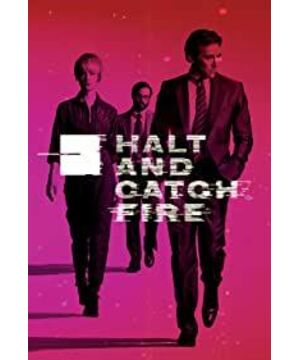However, the screenwriter never seemed to intend to use the tense and exciting plot to keep me as a science and engineering blind. The whole play is only ten episodes short, and the content could not be simpler: a certain era, a certain company, a god flickering and a group of engineering lions want to make history. Some people began to complain: the plot is old-fashioned, the plot is unpredictable, the male and female protagonists can't wait for the first episode, and the male protagonist's orientation is even more unclear, and the two men and two women are caught in the family crisis caused by various trivial
matters every day... But, are these really important?
Even, whether God Fudge has become the king of Amway, and whether the engineering lions have made history by selling them into computers—do these really matter?
In my opinion, it is everyone's actions that are not tightly tied to the theme of "selling computers", and its plot is not so tight and gripping in the end, which makes the story show its moving . Look: do you have to bump into an armadillo on your way to sell a computer? Did the second boy steal a doll from the store cupboard just to show he's a good dad? The people who fell to the ground in the storm are entangled in the dreams of the second male lead, and the male and female protagonists are always entangled with the child who watched the stars on the roof many years ago. Are these plots for abuse? The male protagonist's lonely and conceited character is just to be interesting? Obviously not.
We already know the direction of history. Thirty years later, Cardiff Electronics did not participate as crazy in each of us as they once thought. Even in the plot at that time, the story from the perspective of the protagonist never tried to cover them up. The gap between the products and Apple. But that doesn't matter either, because the purpose of Halt & Catch Fire was never really to create a computer that was unparalleled beyond the possibilities of the times. The fragmented life fragments of many protagonists have paved the way for the voids in the characters' images. They are truly living in the 1980s, a strange future that is still 30 years away from us, and this is also the fear and blankness in their hearts. The slow-crawling armadillo on the road, the disturbing youth in the heroine, the people who come and go like water, ride through hurricanes or fall into heavy rain, and try to dig giants out of the garden dirt— These piece together the real life, that kind of helplessness in front of the future, that kind of real "now". The male protagonist of King Amway shouted "have a lot of fun; make a lot of money", but he was more blocked on the road of "make money" than anyone else. He demanded "different", "different" and "different" forever. Unsatisfied, because of the fear of life, the caution and fear of irreversible life - such empty money will never be filled. They are stepping on the junction of the turning point of the times and feel uneasy. In the concrete life, the computer is the canoe bridge to the future, just like Noah's Ark. Halt&Catch Fire does not need to create an outstanding computer, does not need a perfect love story, does not need to virtualize a golden team that is always in a state of destruction; it only needs to restore the kind of hesitation, contradiction and unease, which is to give the audience a real eighty Age is the best explanation.
View more about Halt and Catch Fire reviews











